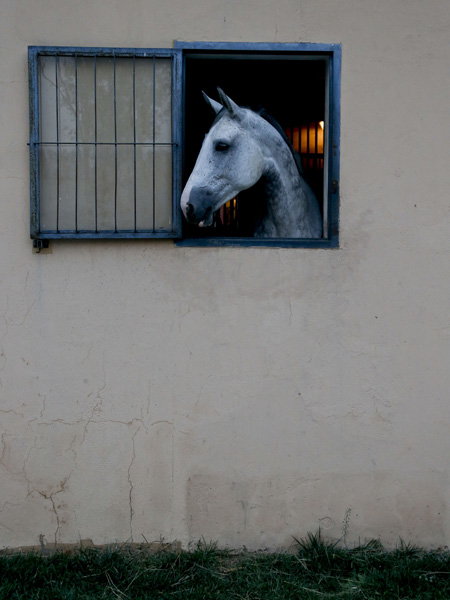 |
|
A horse rests in a stable at the club. KUANG LINHUA/CHINA DAILY |
Like the Hong Kong Jockey Club, the CHC pitches itself as a premium lifestyle club with "all the bells and whistles", including overseas retreats in Switzerland and Australia.
An important breakthrough for the Club was its hosting of the China Equine Cultural Festival in September in 2013 in Hohhot, the capital of the Inner Mongolia autonomous region.
"We brought in the skill set: stewards from three different countries, 12 jockeys from six different countries, trainers, gate crews, officials. We pulled together a United Nations from other jurisdictions who were delighted to participate," Harrington says.
Critically, the CECF was the first race meeting in China to be endorsed by the all-important International Federation of Horseracing Authorities.
Together with the governing body of racing in France, the CHC drew up a white paper that covered the rules of racing, from medical tests to horse registration. "All our members and riders have to abide by them. This is our way of disciplining them and policing them. Anytime we share with government authorities, we send them our white paper to reassure them," Harrington says.
The festival was held in Inner Mongolia, a place steeped in equine culture. Its grassy plains are also potential breeding grounds for thoroughbreds. For the last two years, the CHC has sponsored six students from the region to study at stud farms overseas.
The first year, they went to Coolmore Stud in Ireland; the second, to France to train under the world's leading female horse trainer, Christiane "Criquette" Head.
"These people don't normally take students. But we wanted them to experience and understand the full breeding cycle, from calving (mating) to delivery, so they could bring this knowledge back home. We're investing in the talent of China," Teo says.
Some say that racing in China cannot flourish without the legalization of gambling. After all, betting is one of the few means by which the public can relate to the "Sport of Kings".
But Harrington disagrees. He says there is a distinct overreliance on the betting industry around the world, and China has a good opportunity to learn some of the positives and negatives from established jurisdictions.
"Each country has a different culture of racing and betting: in Ireland the focus is on family, in Australia it's a social event, and in Britain the emphasis is on tradition. China will have to develop its own identity," Harrington says.
He hopes that horses, jockeys and owners will eventually become national icons-personifications of the Chinese Dream.
Like other luxury industries, racing generates plenty of tax revenue and employment, so it merits government support. In this respect, China can learn a lot from the UK, Warren says.
He adds in the UK it is an industry providing 100,000 people with a job. Rearing horses contributes positively to the environment through the cultivation of grassland and hedgerows. In England last year, the Exchequer took in 275 million pounds from the trade in bloodstock, including training, export and private sales.
"It's an important part of the fabric of this country's economy, as in most racing nations," Warren says.
In five years' time, the CHC intends to catapult China to the forefront of the international racing scene.
To some, this might sound a tad ambitious, but Warren says the goal is possible because he believes Teo has the ability to achieve it.
"Because he built Meydan in a country that completely lacked the infrastructure, Mr Teo has a good grasp of how success can occur in a literal and figurative desert. He continues to create a fantastic, legitimate organization that hopefully gives confidence to Chinese people," Warren says.
